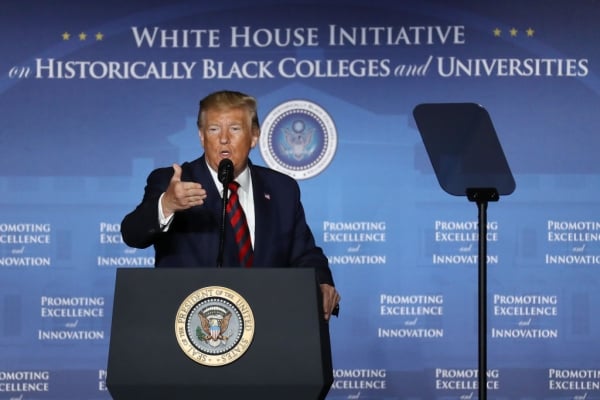During his presidency, Donald Trump made a promise to Historically Black Colleges and Universities (HBCUs) that he would get them “all funded.” However, the reality of the situation is much more complex than a simple declaration.
HBCUs have a long and important history in the United States, serving as institutions of higher education for Black Americans when segregation prevented them from attending traditionally white colleges and universities. These institutions have played a critical role in providing opportunities for Black students to receive a quality education and pursue their career goals.
In 2017, Trump signed an executive order that moved the White House Initiative on HBCUs from the Department of Education to the White House, signaling his commitment to supporting these institutions. He also signed legislation that provided $255 million in funding to HBCUs and other minority-serving institutions.
While these actions were a step in the right direction, they did not fully fulfill Trump’s promise to get HBCUs “all funded.” The reality is that many HBCUs continue to face financial challenges, struggling to secure the resources they need to provide a high-quality education to their students.
One of the main challenges facing HBCUs is their reliance on federal funding and tuition revenue. HBCUs typically have smaller endowments than other institutions and serve a higher percentage of low-income students, making them more dependent on government support. In recent years, funding for HBCUs has been inconsistent, leading to financial instability for many institutions.
Additionally, HBCUs face unique challenges due to their history of discrimination and underfunding. Many of these institutions have outdated facilities, limited resources, and lower graduation rates compared to predominantly white institutions. This disparity in resources and outcomes further exacerbates the financial struggles of HBCUs.
While Trump’s support for HBCUs was a positive step, it is clear that more needs to be done to ensure the long-term financial stability of these institutions. Congress must prioritize funding for HBCUs and address the systemic barriers that prevent them from thriving. This includes investing in infrastructure improvements, expanding access to financial aid for students, and providing support for research and academic programs.
In conclusion, while Trump’s promise to get HBCUs “all funded” was a well-intentioned gesture, it did not fully address the financial challenges facing these institutions. Moving forward, it is crucial for policymakers to prioritize funding and support for HBCUs to ensure that they can continue to fulfill their mission of providing a quality education to Black students.


